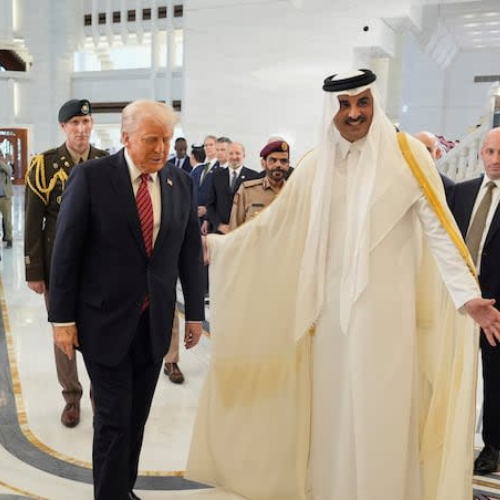New documents from the U.S. Department of Justice show that Qatar, a small but wealthy Middle Eastern country, has been working hard to shape how American media—especially conservative outlets—talk about it. This effort became much more aggressive after Donald Trump won the 2016 presidential election.
Before that, only about 10% of Qatar’s outreach efforts targeted conservative media. But once Trump was in office, over half of their efforts turned toward outlets like Fox News, the New York Post, and the Daily Mail.
Qatar’s goal was simple but serious: they wanted to be seen as a friendly, helpful country, especially by the new U.S. leadership. This was important because Qatar has long been viewed with suspicion for its ties to groups like Hamas and for its relationship with Iran. The country knew it had to change this image to stay on good terms with the Trump administration.
To do this, Qatar hired public relations firms in the U.S. These firms reached out to journalists with story ideas that painted Qatar in a very positive light. Sometimes, articles based on those suggestions were published just a few days later. In many cases, the wording in the articles closely matched what the lobbyists had suggested.
Behind the Scenes Deals
One of the big players helping Qatar was a U.S.-based firm that gets $180,000 a month from the Qatari Embassy. This firm is responsible for creating media strategies, helping Qatari officials with public speaking, and working directly with Qatar in its capital city, Doha. According to government filings, the firm’s president even has to fly first or business class on Qatar Airways and cannot work with any other country in the Middle East or North Africa without Qatar’s permission.
World Bank Greenlights Syria Comeback as Saudi-Qatar Duo Wipe Clean $15.5M Debt Tab
Another lobbying group working for Qatar, called GRV Strategies, is also heavily involved in pushing positive stories. On one occasion in February 2025, someone from GRV messaged a Fox News employee with a suggestion for a foreign policy article. Just three days later, an article was published titled, “Qatar Stands Firm Against Iranian Pressure.” It quoted an anonymous source, which matched the talking points pushed by the lobbying firm.
A similar case happened with the New York Post. A Qatar-linked firm contacted a journalist there in early December 2024. Within three days, the paper ran a detailed article about Qatar’s efforts in hostage negotiations, again portraying the country in a heroic light.
The repeated pattern is hard to ignore: lobbyists suggest an idea, reach out to journalists, and within days, a story is published that looks like it came straight from Qatar’s public relations playbook. Experts say this kind of behavior isn’t typical journalism—it’s more like carefully crafted advertising disguised as news.
High-Profile Rewards and Public Praise
These actions are not just about changing public opinion. They are part of a much larger plan by Qatar to gain power and trust in the U.S., especially among conservatives. Over time, Qatar has also made big moves in American sports, education, and real estate—sometimes even working with people connected to political families.
One major moment in this effort came when a popular news host interviewed Qatar’s Prime Minister. That interview quickly reached over six million views. It was seen as a big win for Qatar’s image-building efforts. This was no accident—it was the result of a detailed and expensive public relations strategy, set up months in advance.
Ministers of Qatar & Turkey Urge Lifting of Sanctions to Ease Syrian Suffering
At the same time, President Trump’s attitude toward Qatar changed noticeably. While he once accused them of supporting terrorism, his tone became much more friendly in recent months. One possible reason? Qatar gave him a $400 million private jet, which he plans to use for his presidential library. Though the Trump team says this is legal because it will be classified as government property, critics argue that it raises serious ethical questions.
International Parallels and Ethical Concerns
The U.S. is not the only place where Qatar has been accused of this kind of influence campaign. In Israel, a major investigation is underway into similar efforts. There, officials are looking into whether Qatari agents used secret channels to push friendly media stories and influence government decisions without telling the public.
Investigators in Israel have found patterns that closely resemble what is now being seen in the U.S.—media messages funded by foreign money, coordinated with lobbyists, and aimed at improving Qatar’s image. These findings have raised alarms among experts who worry about the hidden ways foreign governments can affect public opinion in democratic countries.
With these revelations now public, the depth of Qatar’s media strategy—and its success—has become clearer than ever.


